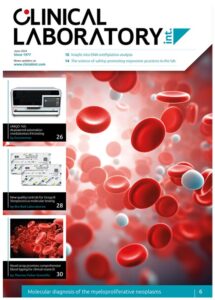AD: first the good news
An eventually fatal neurodegenerative condition characterized by progressive loss of memory and cognition, Alzheimer’s disease (AD) is the major cause of dementia globally. It is estimated that worldwide around 44 million people are suffering from dementia; this has been predicted to triple by 2050 as the population ages, since AD increases exponentially after the age of 65. Much research has been carried out to elucidate modifiable risk factors that could prevent AD from developing in the first place. And because the characteristic beta-amyloid plaques (Aβ) and neurofibrillary tangles ((NFT) eventually visible in cerebrospinal fluid as well as at autopsy can begin to form up to two decades before clinical symptoms become evident, there has been a focus on much earlier diagnosis before any neuronal damage is apparent.
In western Europe, however, there is good news regarding the “Dementia epidemic”. It was previously prognosticated, using data extrapolated from twenty years ago, that AD prevalence would increase dramatically as a result of our ageing societies, incurring an almost insurmountable burden for health services. But a recent analysis in The Lancet Neurology, which considered the findings of large studies from the UK, Spain, Sweden and the Netherlands carried out between 2007 and 2013, reported a reduced prevalence at specific ages compared to the previous generation. The authors suggest that this could be the result of the improved education and healthcare as well as standard of living that today’s senior citizens experienced from their early years until the present. Substantial progress has also been made in identifying modifiable risk factors; evidence-based strategies to lower risk include abstaining from smoking, drinking alcohol in moderation, a ‘Mediterranean’ diet, and most importantly taking regular physical exercise (according to the Caerphilly study, which has followed the lifestyle and health of around 3000 initially middle aged men from 1979 to the present). Recent studies have also linked serum Vitamin D deficiency with AD, and a Mediterranean diet and endogenous synthesis through exposure to sunlight from outdoor exercise ensure optimal amounts of this vitamin.
And the bad news? Although the development of a specific and sensitive blood test, allowing very early diagnosis of AD based on levels of biomarkers (such as MAP kinase-activated protein kinase 5) is now on the horizon, there is still no drug that can cure AD. Those available that regulate neurotransmitters only alleviate symptoms in some clinically diagnosed patients. Although such tests could facilitate drug discovery and development, it is questionable whether their routine use in advance of effective treatment would be ethical.



